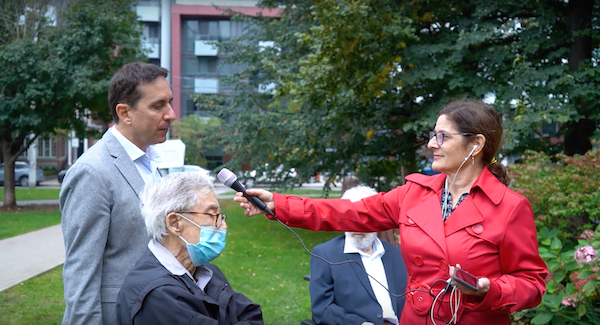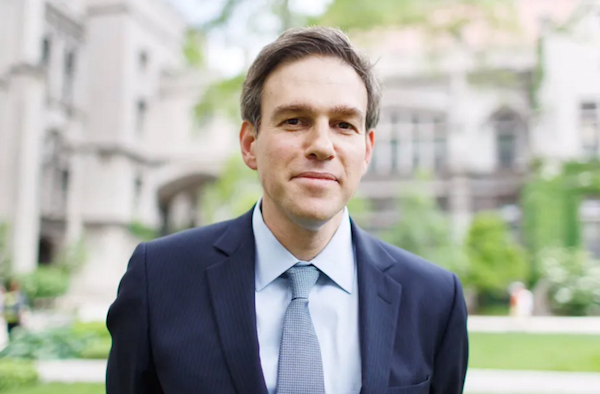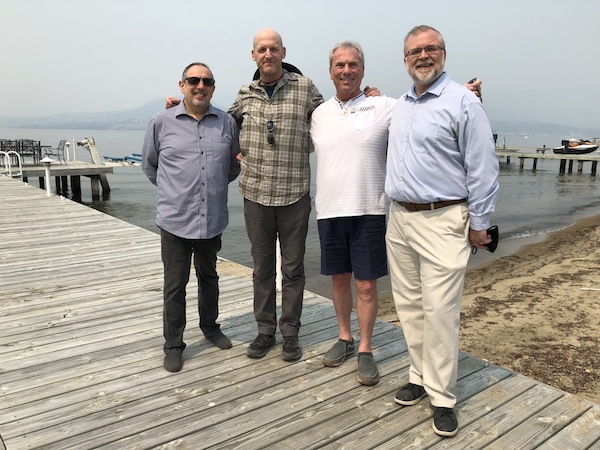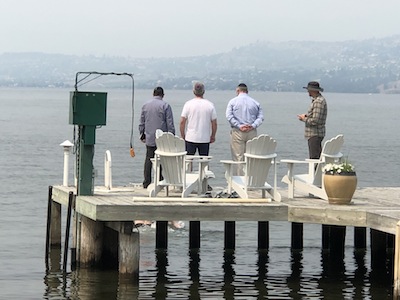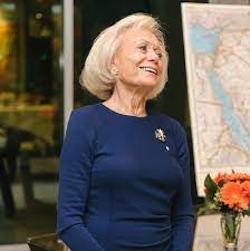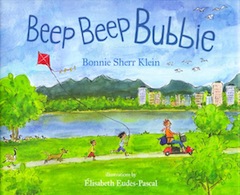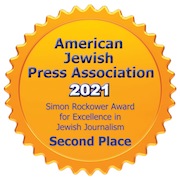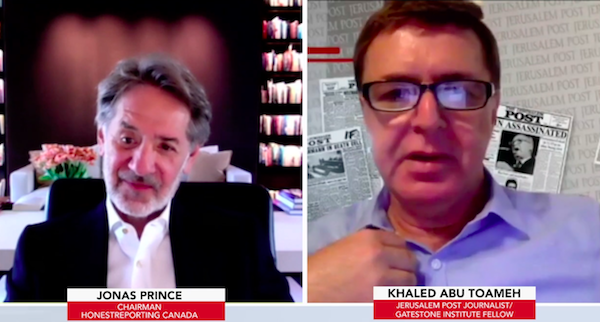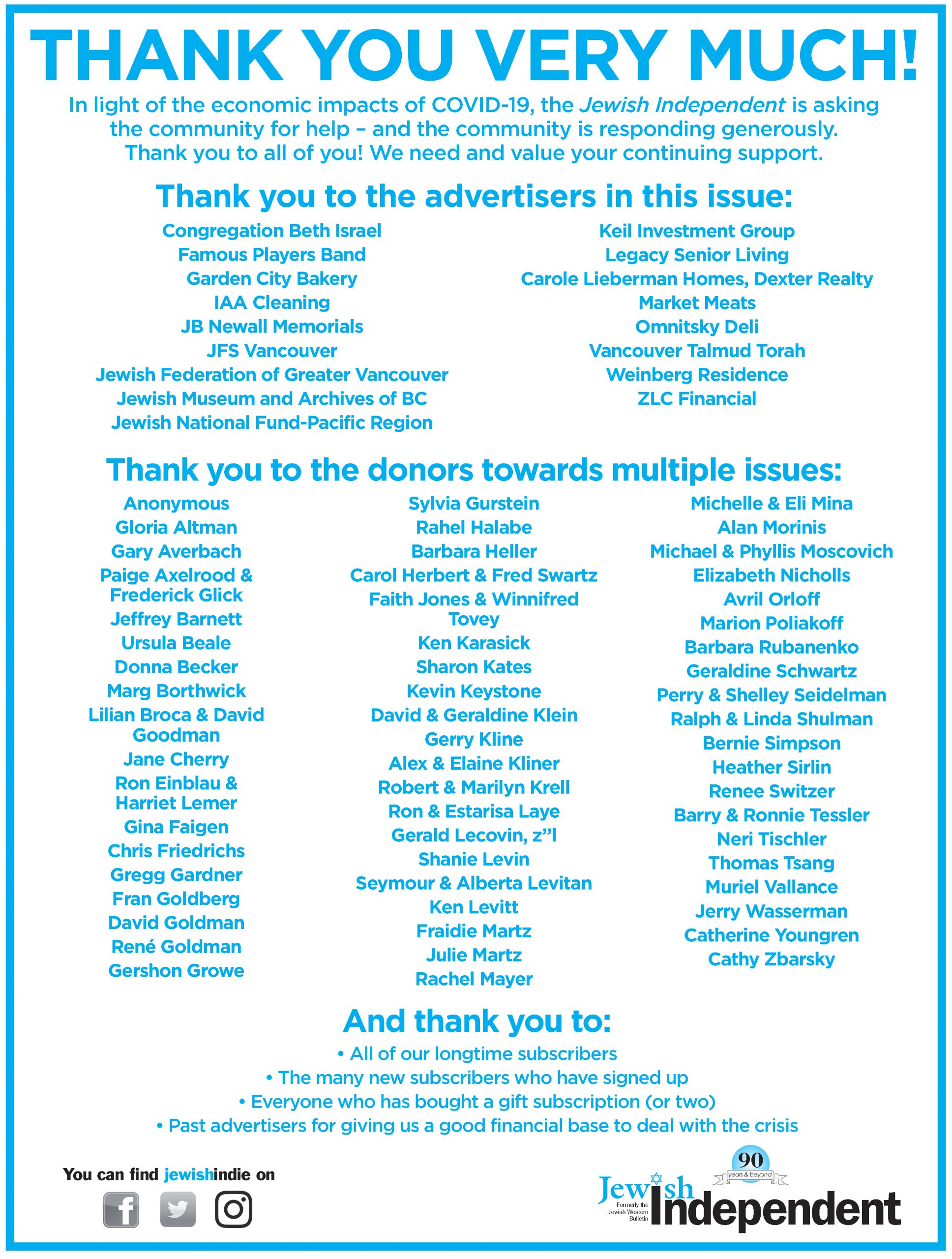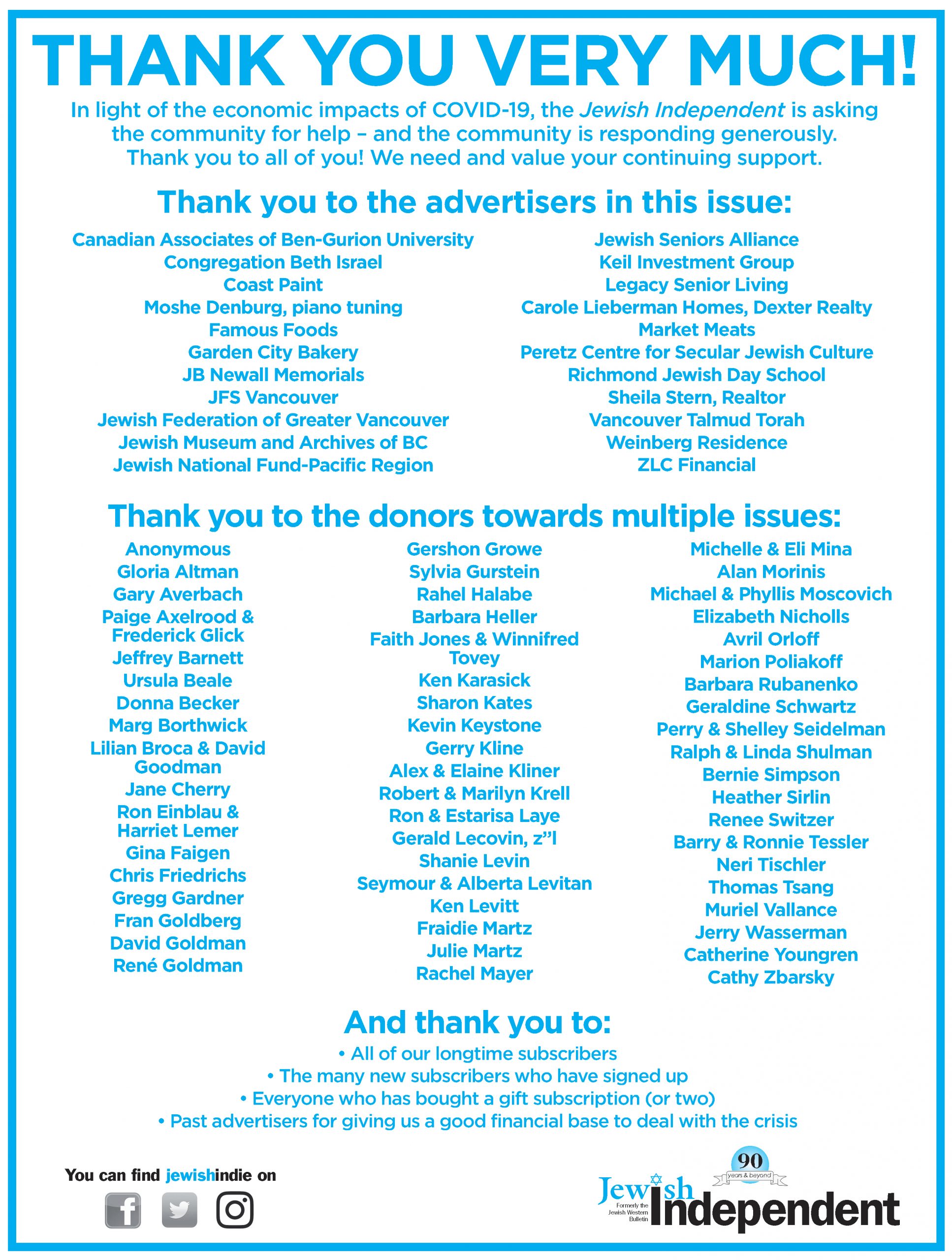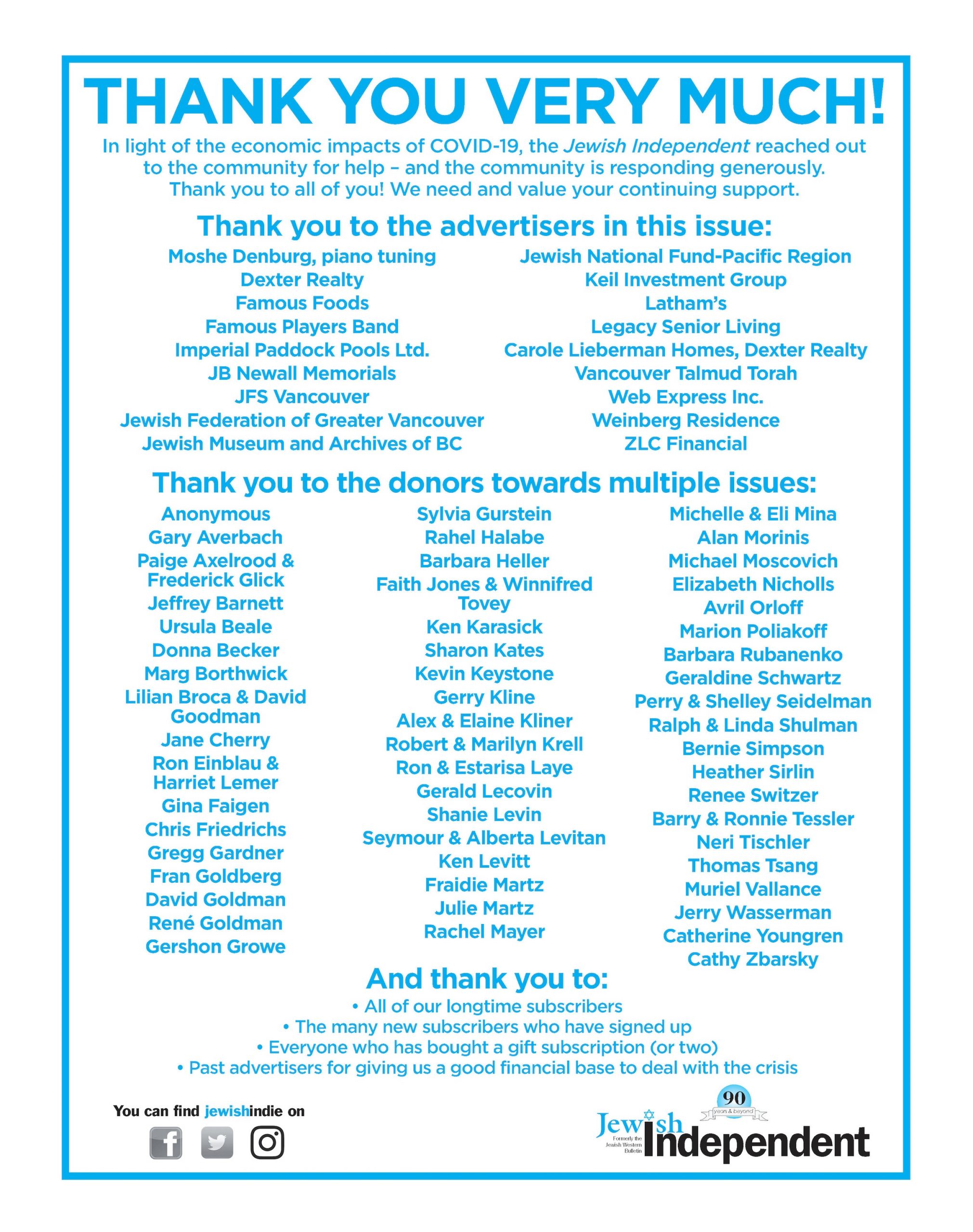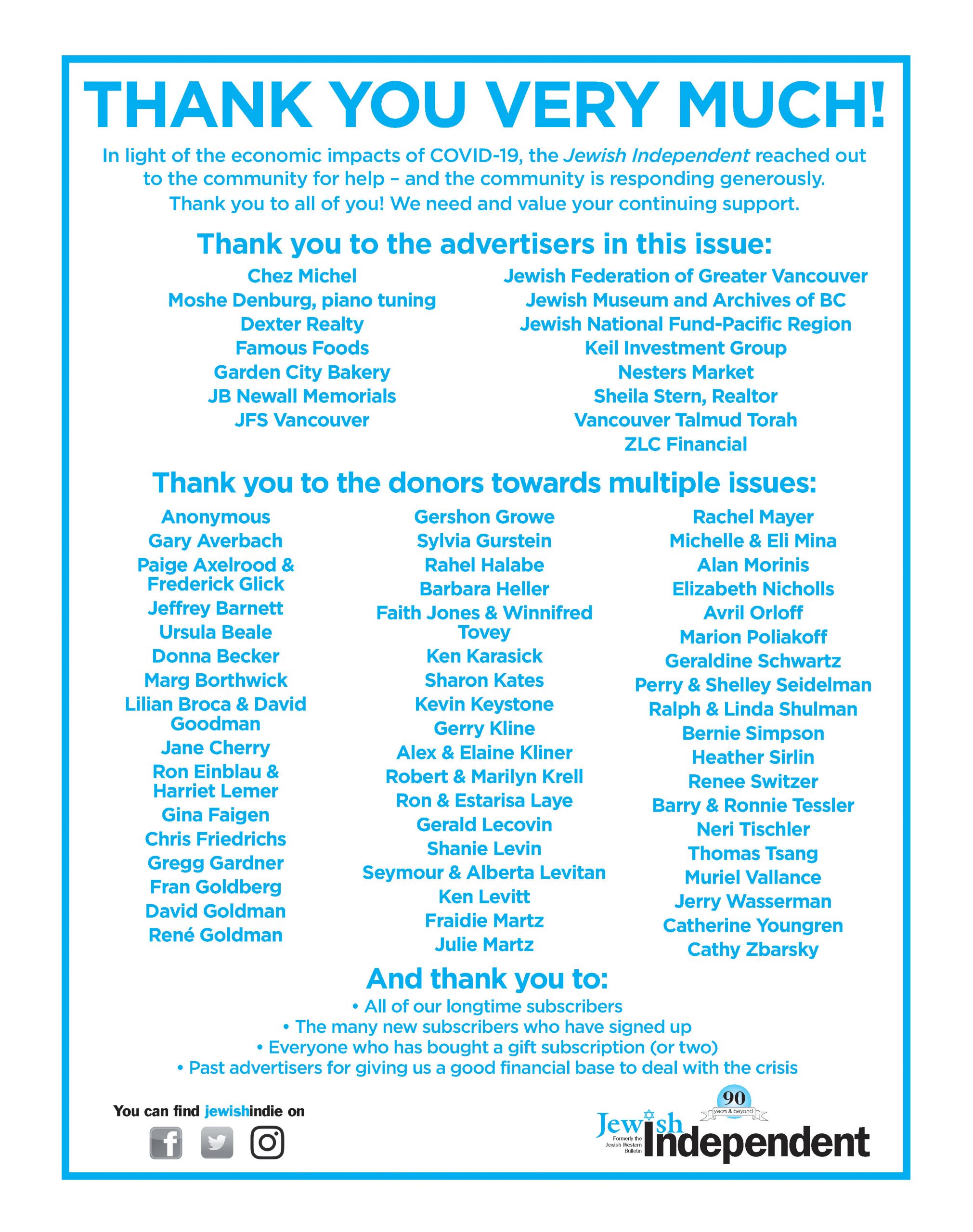Ellin Bessner in the field reporting, October 2021, for her podcast, called The CJN Daily. (photo from Ellin Bessner)
Ellin Bessner is the host of The CJN Daily, one of several new podcasts featured on thecjn.ca, the Canadian Jewish News’ recently revamped website.
A veteran journalist, Bessner caught the reporting bug early in life.
“I have been a journalist since I was 10 years old – even though I didn’t know I was at the time. I was like the fictional character Harriet the Spy, writing notes about my parents’ friends,” she said of her first recollections as an aspiring member of the press.
These days, she hunts around for and discovers stories throughout the country that others might miss – all with the objective of depicting “what Jewish Canada ‘sounds’ like.”
“I read a lot, I scour the internet. There are literally stories everywhere. I don’t have enough time or enough podcasts to do [them all],” Bessner said, as The CJN Daily nears its first anniversary.
Bessner has broadcast stories on people as diverse as Rabbi Yehuda Sarna, the Montreal-born chief rabbi of the United Arab Emirates; Ashley Waxman Bakshi, a Canadian Israeli social media influencer; and Rabbi Arnold Noteh Glogauer, the first Canadian Jewish chaplain to set sail with the Royal Canadian Navy.
She also attempts to present all sides of contentious issues. During the February blockades in Ottawa, for example, she interviewed Jews who were involved in counter-protests against the truckers and two Jews (both vaccinated) who supported the convoy.
The CJN Daily has done several British Columbia stories, as well. To date, the show has aired a discussion with Aaron Levy, an Abbotsford disc jockey broadcasting about the November floods; a dispatch from a Jewish woman in Kamloops on her experience this summer in the path of British Columbia’s largest wildfire; an interview with Bernard Pinsky on security at the Jewish Community Centre of Greater Vancouver; a talk with environmental activist Seth Klein after COP26, the climate change conference in Glasgow; reflections on high school graduation from King David High School’s Class of 2021; a look at the number of people converting to Judaism in Kelowna; and a report about Jews in Kamloops and their reaction to the discovery of hundreds of Indigenous child graves in their community.
“British Columbia really had a terrible year,” said Bessner. “You had drought, forest fires, smoke, Indigenous issues … security issues and hunger. There is room for a B.C. story every single day. I really try to do as many as I can.”
CJN reinvents itself
In April 2020, a month into the pandemic, the CJN closed for the second time. The first time, in 2013, it returned after several months. This latest closure ended in December 2020, with a new CJN that is mainly a digital periodical.
“They chose to close after the Pesach issue in 2020. There was no revenue coming in and they decided to shut down,” explained Bessner. “A few months later, everyone thought that was CJN’s demise. Other websites came in to fill the gap. Meanwhile, those associated with CJN had decided to pivot to digital.
“It was a good opportunity to do that while everyone was at home and Zooming,” she said. “They re-launched digitally on Facebook only and got rid of the old website. Eventually, more money came in. The CJN doesn’t have the same look as before. We are doing it in a more modern way. These are the times and we have to be with the times.”
That said, for those who want to have a more traditional copy of the paper, the CJN still offers a printable weekly digest of stories every Friday (available on its website) and The CJ Magazine, a quarterly that will have its first issue later this year.
 As for The CJN Daily, its start last spring did not go off according to script, Bessner recalled. “The podcast was launched on May 3, right when the Mount Meron tragedy occurred on Lag b’Omer,” she said. “All our planned interviews on Jewish Heritage Month were rescheduled. And then Israel had a war.”
As for The CJN Daily, its start last spring did not go off according to script, Bessner recalled. “The podcast was launched on May 3, right when the Mount Meron tragedy occurred on Lag b’Omer,” she said. “All our planned interviews on Jewish Heritage Month were rescheduled. And then Israel had a war.”
The CJN Daily provides Monday to Thursday updates on the Canadian Jewish scene, from coast to coast to coast. The show can be heard on Spotify, Apple and other podcast platforms, as well as on the CJN website. There are also extended versions of Bessner’s interviews on the CJN’s YouTube channel.
Other podcasts on the CJN roster include Bonjour Chai, a weekly current affairs show; Yehupetzville, a look at Jewish life across Canada; Rivush, interviews with Jews of Colour hosted by Rivka Campbell; Menschwarmers, “the world’s most popular Jewish sports podcast”; and A Few of My Favourite Jews, with comedian Laura Leibow.
Bessner has worked for the Canadian Press, CTV News, CBC News and JazzFM. As a correspondent, she has reported from across Canada, Europe and Africa. As a professor, she has taught journalism at Ryerson University, Seneca College and, most recently, at Centennial College.
She is the author of Double Threat: Canadian Jews, the Military and World War II (2018) and a contributor to Northern Lights: A Canadian Jewish History (2020). In 2019, thanks to her efforts, Veterans Affairs Canada created a section on its website recognizing the contributions of Jewish men and women who served in the Canadian military during the Second World War.
Sam Margolis has written for the Globe and Mail, the National Post, UPI and MSNBC.

